Religion in Elin is intimidating. Your first exposure to it will often be encountering cult fanatics roving the wilderness or finding mysterious shrines in dungeons. Despite these first impressions, siding with a deity provides exclusive upsides and is a great way of getting strong party members and legendary weapons.
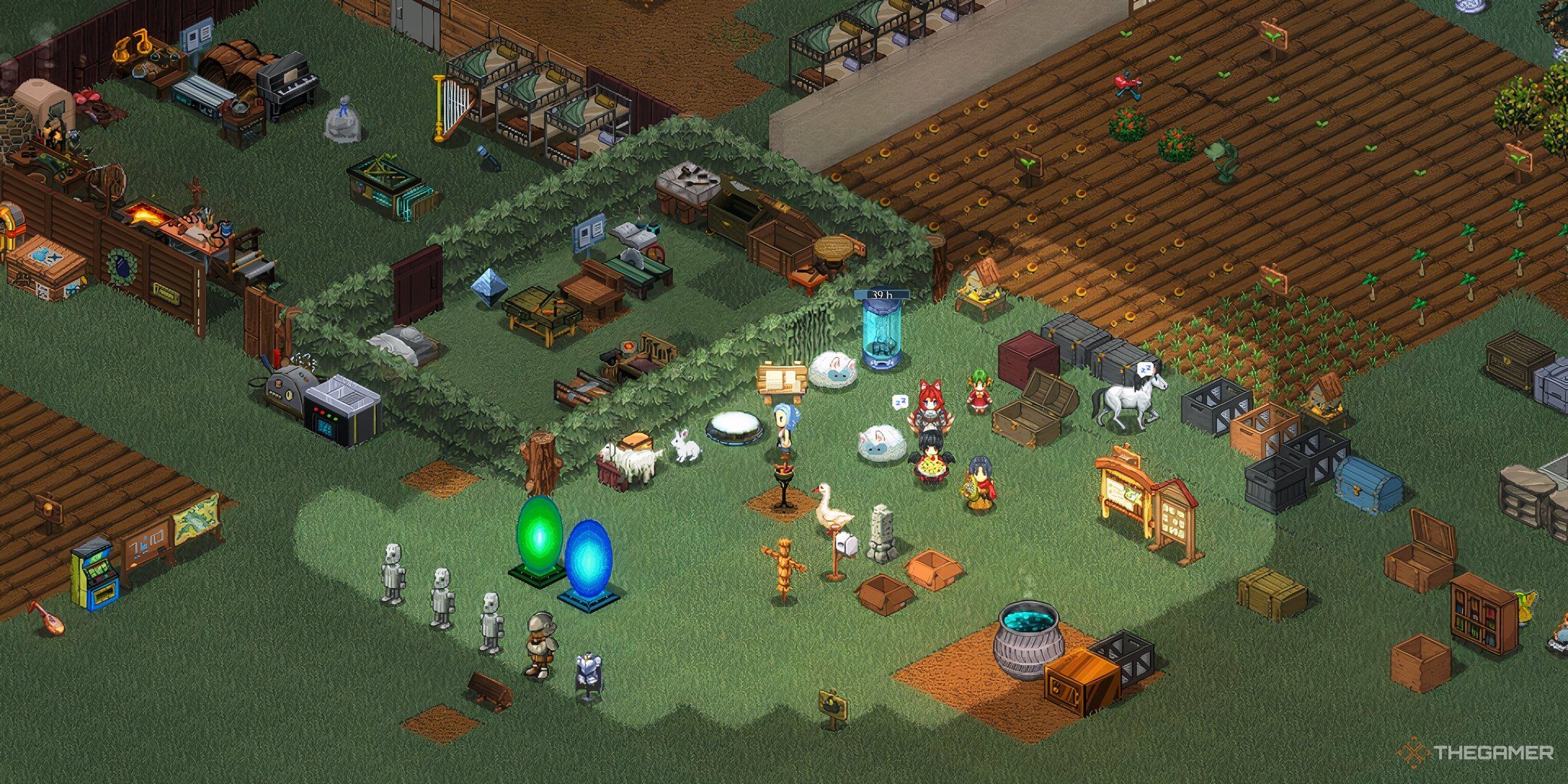
Related
Having a pet can help you in many ways in Elin, but taking care of your animal is not easy. Learn everything about your possible animal friends.
Which deity offers the most will depend on your playstyle, but there are no permanent penalties if you decide to shop around and see what all of them have to offer. This guide will cover the different deities you can worship, the benefits their faiths give, and how to build up the hidden piety stat used to get divine favors.
How Faith And Piety Work
There are a few different systems around religion that run alongside each other and offer different rewards.
When you choose to worship a deity, the game will track how long you’ve been in their service. You’ll get some attributes and skill boosts proportional to this time. You’ll gain access to the Pray ability which can be used once per day to fully restore your health and mana.
Praying also gives a small amount of faith and piety, so taking the Model Follower feat is a good investment. This will automatically pray once per day, making sure you don’t miss days when using fast travel or doing a week-long fishing vacation.
Paying tribute at the altars of your deity will give you piety, a secondary attribute that isn’t visible on your character sheet. At certain levels of piety, you’ll be given unique rewards the next time you pray.
- The first is their apostle, a companion or pet. These are strong party members that, unlike adventurers, don’t require charisma to recruit.
- The second is their divine weapon. These are strong weapons by themselves but have faction enchantments that benefit your entire party as long as you remain faithful.
- Developer notes hint at a third set of benefits that are not currently in the game.
You cannot gain more piety than you have faith, which is tracked on your character sheet. Unless you deliver large amounts of tribute very early in the game, this is unlikely to be an issue. To get the divine weapon you need a faith skill of at least 30. The message “You feel a sense of oneness” when offering tribute means you have hit the piety limit for your current faith skill.
How To Change Gods
Choosing to worship a new deity will forsake your previous one. They’ll give you the debuff “divine punishment” with a duration dependent on how long you were faithful.
Divine punishment is attached to a heavy iron ball that cannot be removed from your inventory until the duration expires (typically by traveling in the overworld, as the duration does not reduce while you are asleep.) The weight scales to your carrying capacity, so it is difficult to ignore but never a lethal threat by itself.
If you choose the Demigod race at character creation, you’re completely immune to divine punishment. Blaspheme to your heart’s content!
There are two strategies for using faith and piety in the game:
- Choose a single deity to worship and spend the entire game faithful to them. You’ll get a sizable bonus to their chosen attributes and skills and the faction benefits from your weapon will always be active.
- Change deity every time you’re given a divine weapon so you can collect all of them. After a while, the iron ball of divine punishment unlocks an alternate skin to represent your spiritual flexibility.
You can’t have more than two apostles in your party, or they’ll start fighting each other. They won’t mind sharing a village, so you can still recruit all of them.
All Gods And Their Piety Rewards
The easiest place to find most altars is the Truce Grounds, North of Palmia. Here, you’ll find the core pantheon of eight deities. The remaining three deities have shrines in nearby settlements:
- Further north you’ll find Nefu village with the altar of Horome.
- Southeast from Palmia you’ll find Mifu village with the altar of Kizuami.
- Yevan has an Altar in Aquli Teola, West from Palmia.
Eyth of the Void is part of the core pantheon but not an active participant in godly affairs. Worshipping Eyth gives no benefits. Similarly, Yaksha of Oblivion is only worshipped by NPCs and provides no follower bonuses.
|
Deity |
Favoured Playstyle |
Divine Weapon |
Passive Bonus |
Apostle |
Favoured Tribute |
|---|---|---|---|---|---|
|
Lulwy of Wind |
Ranger |
Bow |
Gain bonus speed and can buff it further with stamina. |
Angel (fast mount) |
Booze |
|
Opatos of Earth |
Tank |
Mace |
Take reduced damage from all attacks. |
Knight (tank companion) |
Ore |
|
Jure of Healing |
Healer |
Polearm |
Can cast a healing spell with stamina instead of mana. |
Cleric (healer companion) |
Baked goods |
|
Ehekatl of Luck |
Rogue |
Dagger |
Randomizes spell costs (cheaper on average). |
Cat (mage pet) |
Raw Fish |
|
Mani of Machine |
Ranger |
Shotgun |
Hostile machines can become temporary followers. |
Android (ranged companion) |
Pipes |
|
Itzpalt of Element |
Spellcaster |
Staff |
Resist fire, ice, and lightning damage. |
Exile (mage companion) |
Books |
|
Kumiromi of Harvest |
Farmer |
Scythe |
Better farming and higher sales value for fresh produce. |
Fairy (archer pet) |
Vegetables and seeds |
|
Horome of Moonshadow |
Spellsword |
Longsword |
Restore mana when using melee attacks. |
Fox maiden (mount) |
Spell rods and rice wine |
|
Kizuami of Trickery |
Pacifist |
Shortsword |
Can apply debuffs on enemies more easily. |
Vixen (mage companion) |
Noodles and rice wine |
|
Yevan of Strife |
Melee Fighter |
Longsword |
Gives a killstreak bonus that increases melee damage. |
Militant (support mount) |
Swords and Armour |
Best Gods To Worship
There are a lot of gods to choose from and not all of their weapons and apostles are equally strong. The most standout rewards we found were as follows:
- Mani’s Divine Gun, which deals high damage, silences casters and deals area damage. We applied a knockback enchantment and gave it to the party member with the highest attack speed.
- Ehekatl’s Cat Apostle, which licks any loot you pick up to apply an extra level of enchantment to it. A great pet to use Symbiosis on.
- Kumiromi’s Worship Passives, which greatly increases the sales value of fresh produce and gives a large boost to farming skill. The best deity to worship while playing base builder.
- Kumiromi’s Fairy Apostle, which is the only way of gaining seeds for the highly nutritious Rainbow Fruit. After getting one seed you can safely turn apostate and stuff the fairy in a broom closet somewhere.
- Opatos’s Divine Hammer, which doubles your health and causes earthquakes when attacking.
- Horome’s Fox Apostle, who gains additional speed and life as she levels up to become one of the best mounts in the game.
- Lulwy’s Angel Apostle is strong in combat and just looks very intimidating when her near-death passive activates. As a mount, her high speed is shared with the player.
- Itzpalt’s elemental defenses make it easy to gain complete immunity to fire and cold damage, as well as item destruction from their effects.
Since you can only have two apostles in your party, you’ll need to make some tough calls between the cat, fox maid and black angel. We opted for the cat and fox maid as our long-term party members. The weapons have no limitations, so with enough arms, you can wield all of them at once.
There is no penalty for giving a divine weapon to a party member who doesn’t worship that god. A Fox Maid with Opatos’ hammer can unleash earthquakes with comedic speed.

Related
Elin: How To Get The Ether Antibodies Potion
Ether disease is a crucial mechanic in Elin. Learn everything you need to know about this illness and how to take care of it in this guide.
Gods With Unique Interactions
Some of the deities have special conditions and events related to them that may influence your decisions to worship them or how you use their apostles and weapons:
Unique Conversion Interactions
Some gods have special interactions when worshipping and forsaking them:
- Jure is the easiest deity to convert to. Visiting Noyel during the 12th month, you’ll encounter a religious festival. Speaking to the mascot at the altar, you’ll be given the opportunity to convert without any divine punishment, and your days of service will be transferred. You’ll also be gifted a free body pillow of the goddess, which improves sleep quality and heals sanity.
- Opatos is the most punishing deity to forsake. The ceremonial weight you need to carry during penitence is based on your maximum carrying capacity. Since Opatos increases your weightlifting skill and strength, you’ll suffer both a heavier penance and a reduced capacity to carry it.
- Horome and Kizuami have unique dialogue when converting between each others’ religions and do not impose a divine punishment. If collecting all the divine weapons, you’ll want to worship these two back-to-back.
- Mani and Lulwy are two of the best deities to forsake after getting their weapons. Their divine equipment is split into a weapon and armor piece, with the armor piece holding all the faction-specific bonuses. This means their divine weapons keep their full strength.
Gods With Fixed Playstyles
Two deities in particular, Jure and Kizuami have a dramatic impact on playstyle that can influence class and feat choices:
- Kizuami’s divine weapon prevents the player from inflicting direct damage and can only be unequipped by casting uncurse. You’ll want strong pets, maximum party size and summon spells. You’ll also need to invest in keeping everyone well-fed and equipped.
- Paladin players gain an extra ability when worshipping Jure. The Lay on Hands ability allows you to negate any lethal damage once per day.
The pacifist curse of Kizuami’s weapon is always applied to only the player, even if another party member or a villager has the sword equipped. Do not place it in a shared container or you might find yourself unexpectedly cursed.
Gods With Bonus Apostles
Some gods have recruitable NPC worshippers who share the powers of their apostles without counting toward the two apostle limit.
- The shrine keepers in Nefu village and Mifu village have the unique feats of Horome and Kizuami. As villagers, they can also bless the player to give long-lasting buffs.
- Eureka, a demigod who keeps vigil in The Place Where Winds Rest, has the militant’s party-buffing aura.
- Verna, a high-ranked adventurer, has the same unique feat as the Black Angel of Lulwy.
- Another Black Angel can be found on the northern coast in a village called “Somewhere”. She does count towards the two-apostle limit.
The God You Can Fight
The sealed god Innos of Hatred cannot be worshiped but is available as a secret boss in The Place Where Winds Rest. Visit the site shortly before midnight and pay your respects at each of the graves on the map.
He’s stronger than every other boss in the game combined, so consider yourself a veteran if you survive more than one strike.
Innos does not despawn after killing you. If you want to recruit Eureka of Strife from the shrine on this map, you’ll want to do that before summoning the Prince of Betrayal.
How To Build Piety
Most of the deities have some easier or discounted method for building up their piety quickly.
- Itzpalt will accept a slightly read naughty magazine for the same value as an intact Spellbook of Meteor. You can also tribute deciphered ancient books, which have no other usage.
- Guns are an obvious tribute for Mani but much more expensive than copper pipes, which can be crafted at a blacksmith’s table.
- Horome accepts spell rods as tribute. If you have mana battery Ether Disease, you can drain all charges from the rods before tributing them.
- Jure accepts bread, which can be crafted or purchased in large stacks.
There is a hidden throttling mechanic that prevents you from gaining too much piety from a single tribute. If you’ve got a large stack of items to offer, it’s best to divide them into stacks weighing about 10s.
The hardest deities to build piety with are the ones that don’t have an obvious or easy-to-craft tribute. For deities like Yevan, you’ll need to use a generalist approach.
All deities will accept fresh corpses as tribute. Doing monster extermination or war quests and stuffing everything in your cooler box will give you a decent haul of piety. Corpses lose value as tribute if they are allowed to rot. An altar at your base allows you to teleport home and pay homage without any risk of spoilage.
War quests only appear after reaching 1000 points of fame. You’ll also want to gain the anatomy skill which increases the drop rate of high value corpses.
How To Get An Altar At Your Base
Getting an altar at your base is really useful in the long term.
- It allows you to deliver tribute using a scroll of return or from your base’s stockpiles.
- You can also position vendors next to the altars so you can go straight from shopping at the bakery to gifting your spare bread to Jure.
- Placing a pot of water on the altar will give you blessed water if it’s your god or cursed water if it’s another deity. This lets you make cursed and blessed potions and equipment.
The easiest method for getting an altar in your home is collecting the Altar Of Earth in Palmia’s church using six furniture tickets. Repeatedly throwing it down the street until you get to the post office lets you stuff it in the delivery box and ship it to your homestead. From there you can attempt to convert it to your current deity.
Altars with a unique sprite cannot be converted. These apply to the three minor deities: Yevan, Horome, and Kizuami.
Converting an Altar changes the deity it is assigned to and gives you a nice chunk of extra piety if it succeeds. Make an offering to it using the same tributes you would use for your current deity. Higher quality tributes have a better chance of success.
Failed conversions will give you divine punishment for 200 turns. Attempting a second conversion while under the punishment will instantly kill you.
Altars of Eyth will never resist conversion. If you find one while exploring, it’s always worth tributing a random corpse to it.
How To Convert NPCs To Your God
There are benefits for converting an NPC to follow a specific deity.
- Getting party members to worship specific gods can help them grow certain stats. Lulwy’s boost to speed is great on your mount, for example.
- Some class features are locked behind specific religions, such as the Paladin’s Lay on Hands.
- Some people will enjoy roleplaying one of their settlements as a religious commune.
You’ll rarely encounter an ancient book identified as dojin of a specific deity. Gifting this book to NPCs will cause them to read it and instantly convert to the deity.
The books are rare but are more likely to be sold by exotic traders when you visit a town during a festival. They can also be produced by painters in your homestead.
Apostles and certain key NPCs cannot have their religion changed. The Fox Maid has a paladin feat that only activates when worshipping Jure but she will only ever be able to worship Horome.
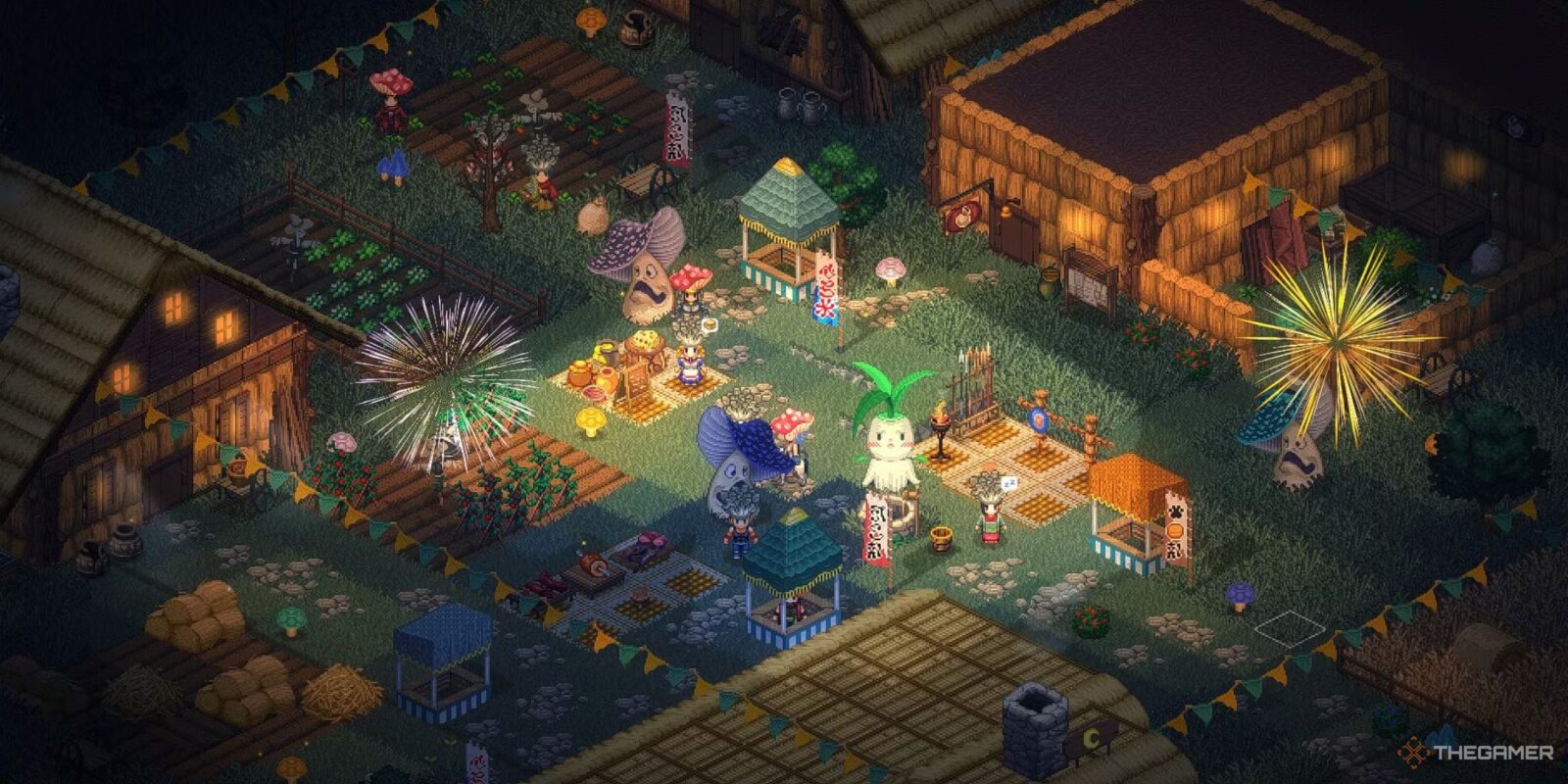

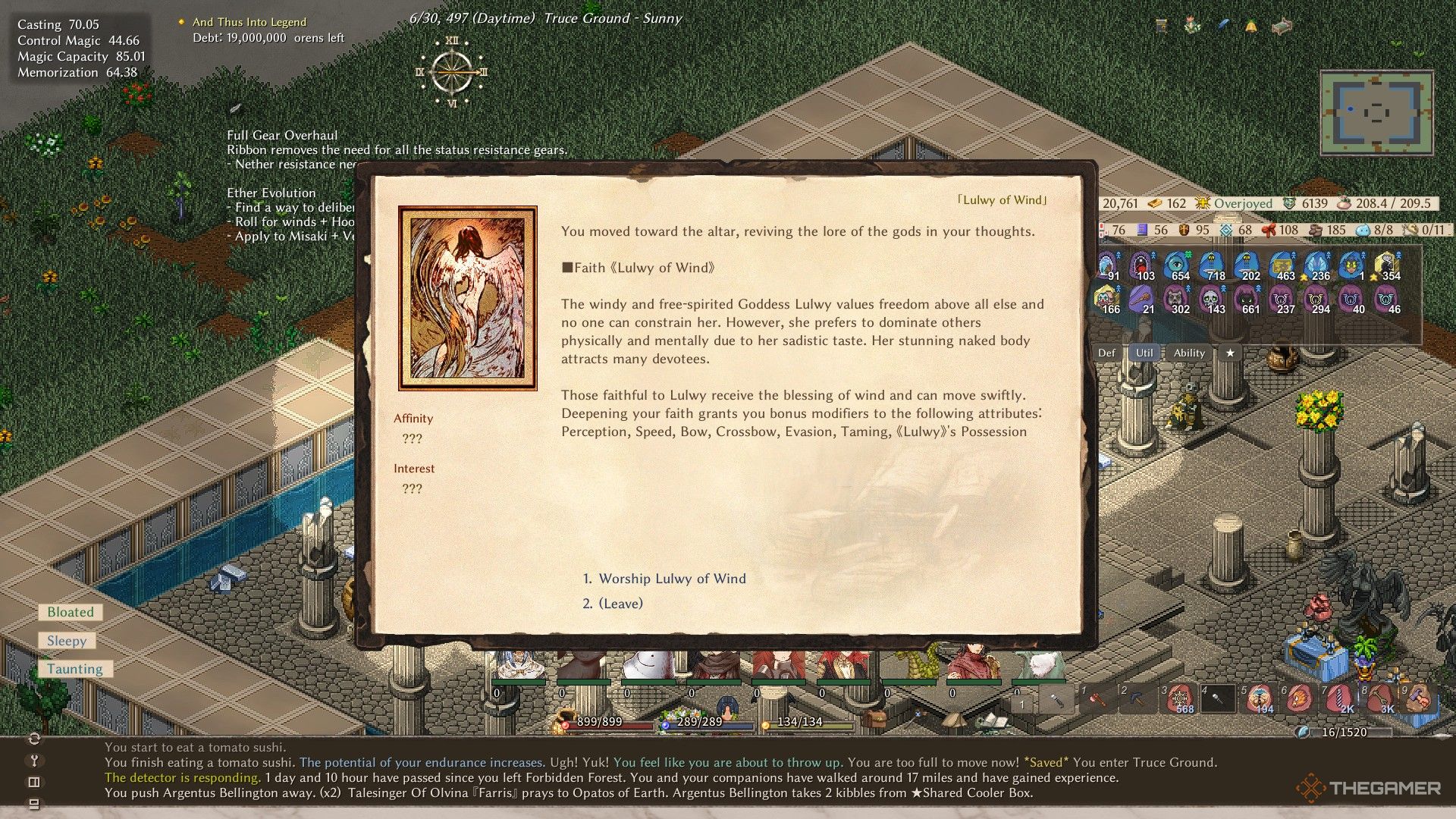
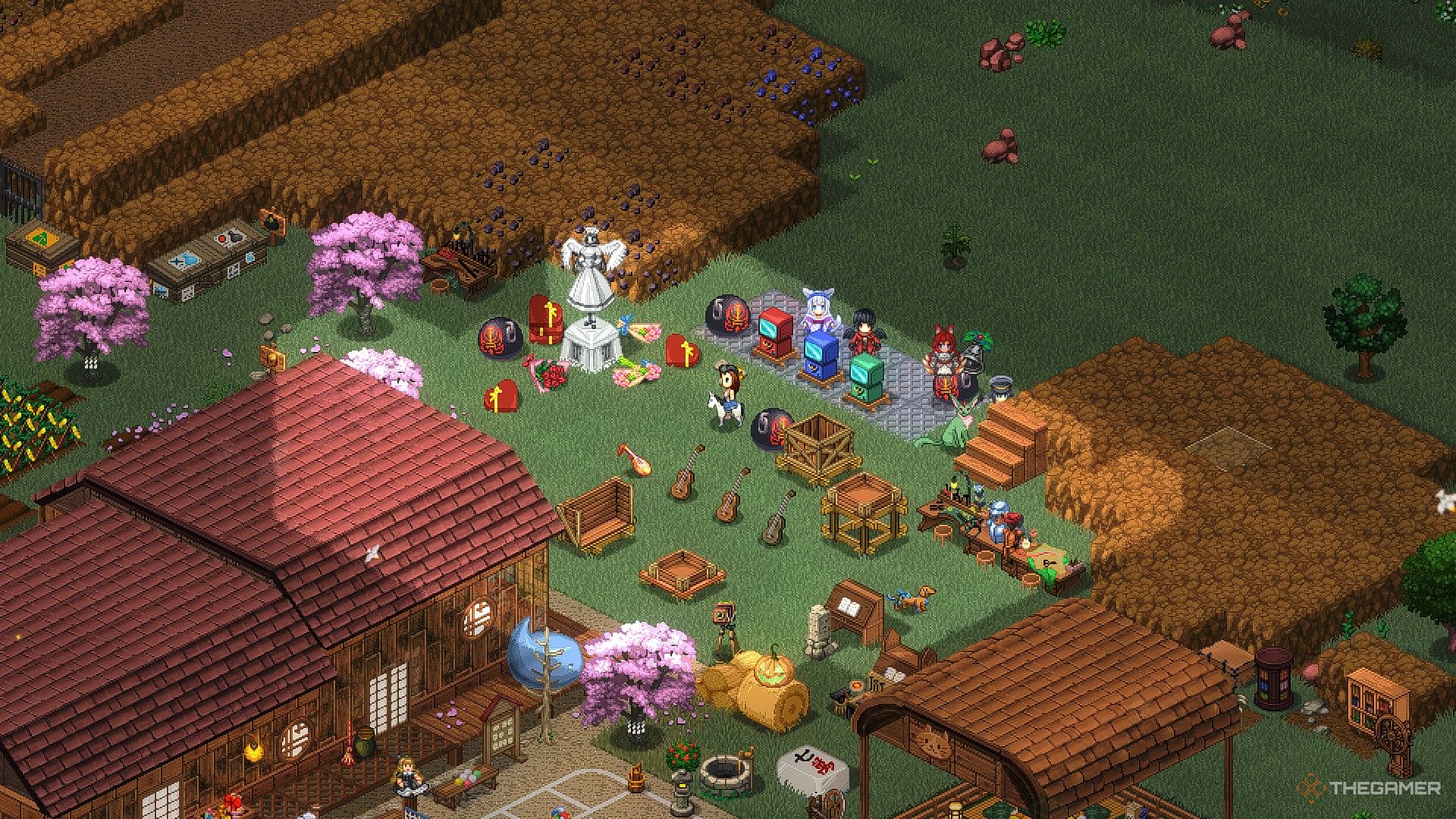
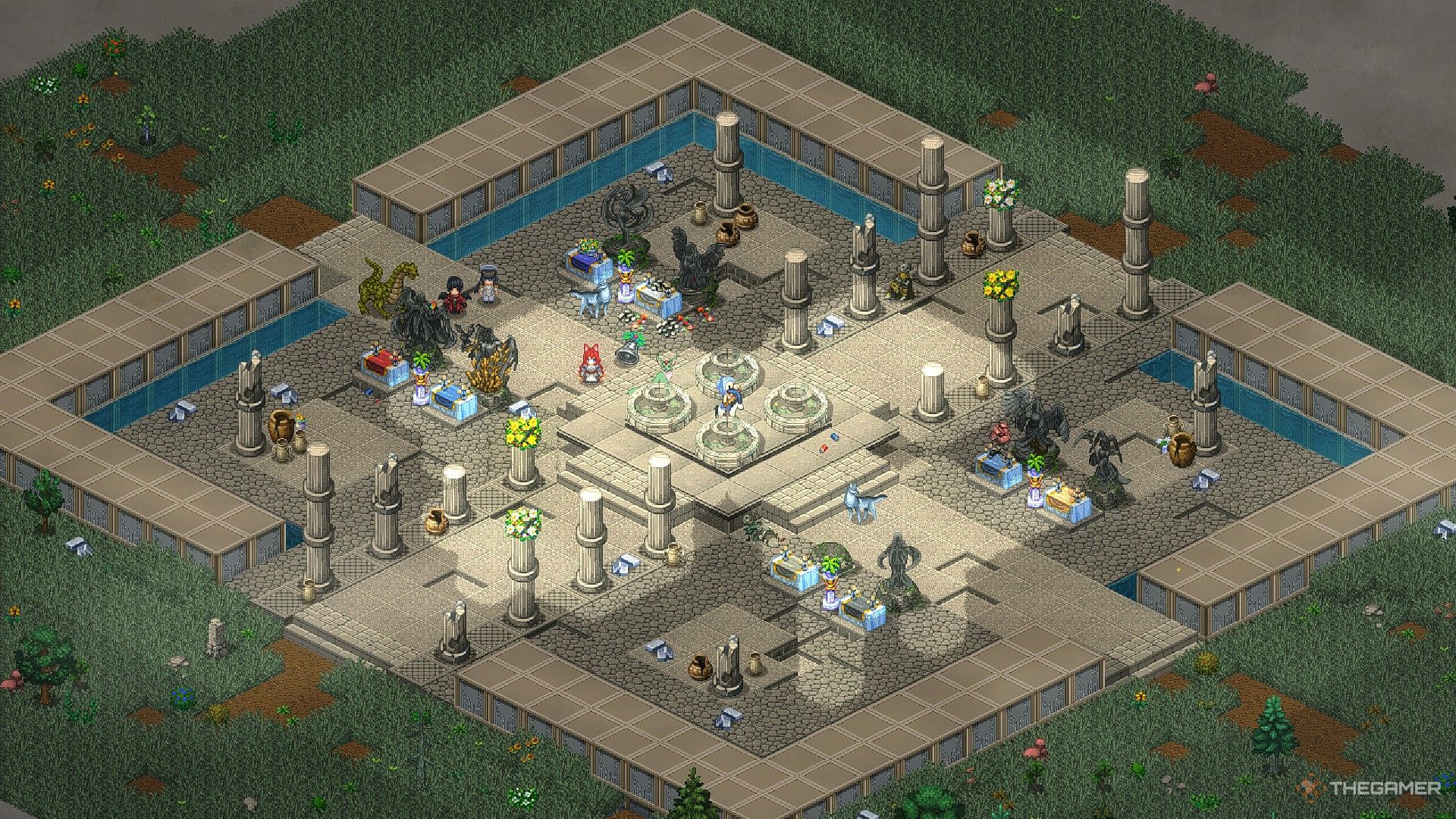
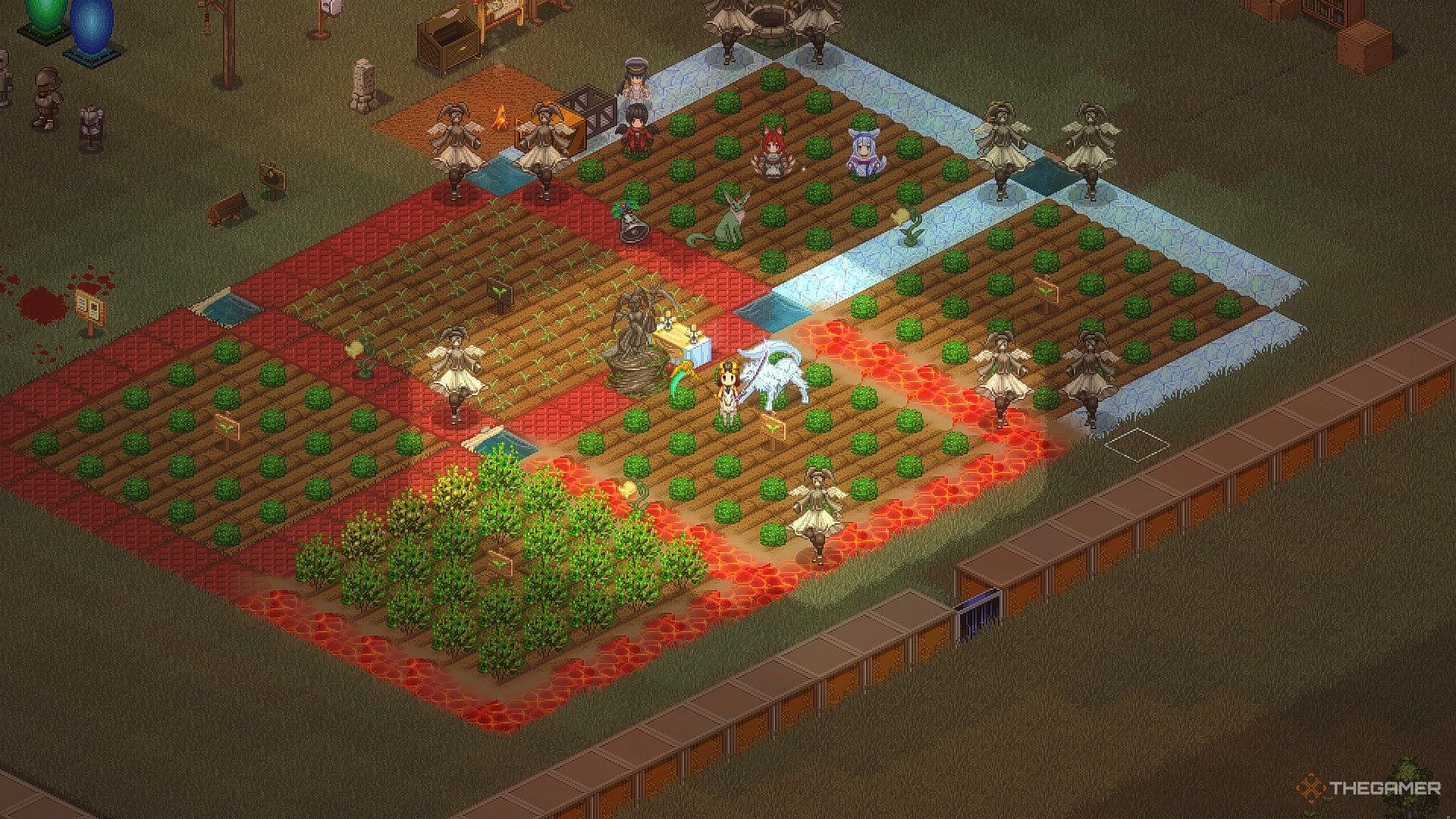
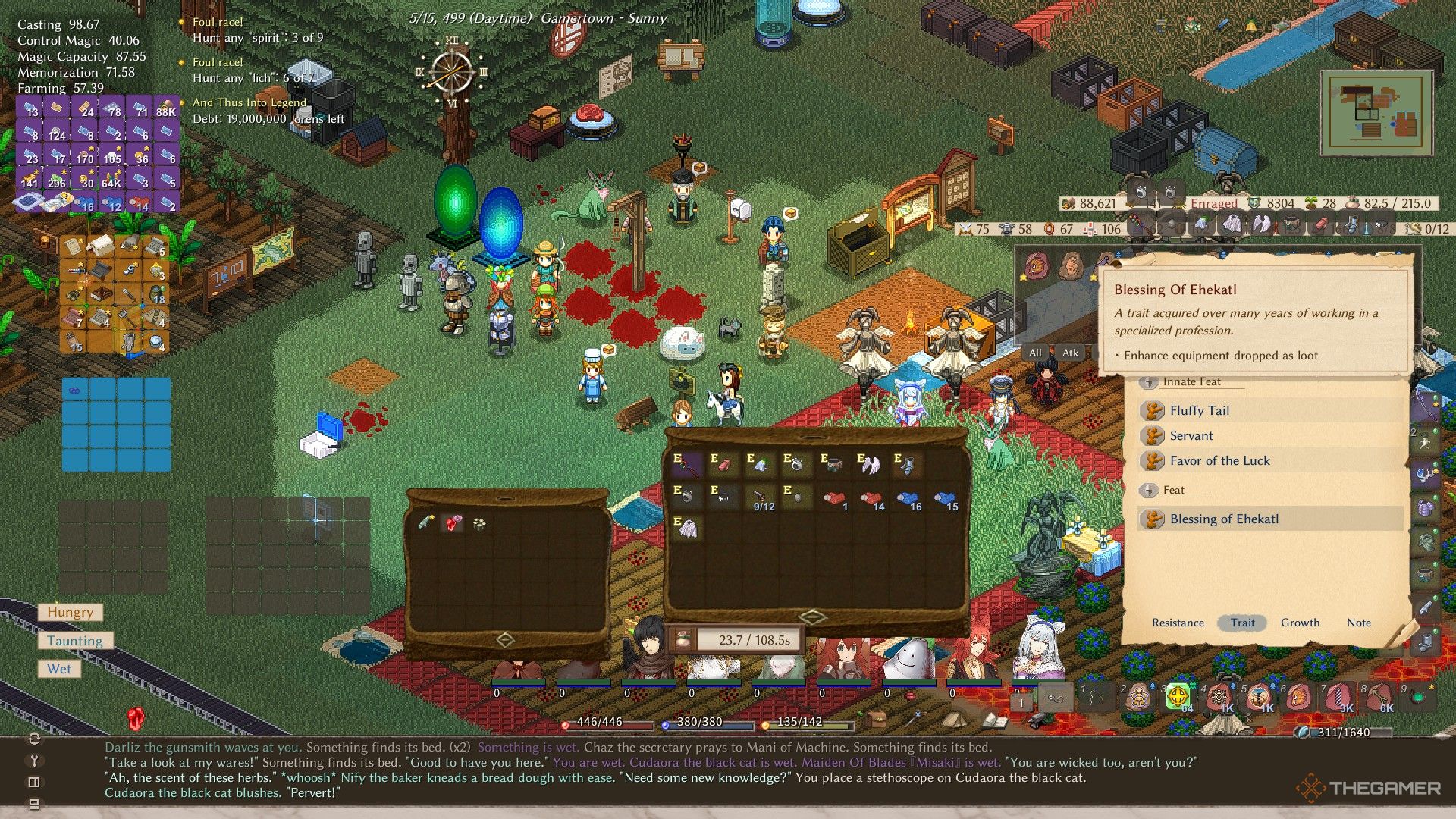
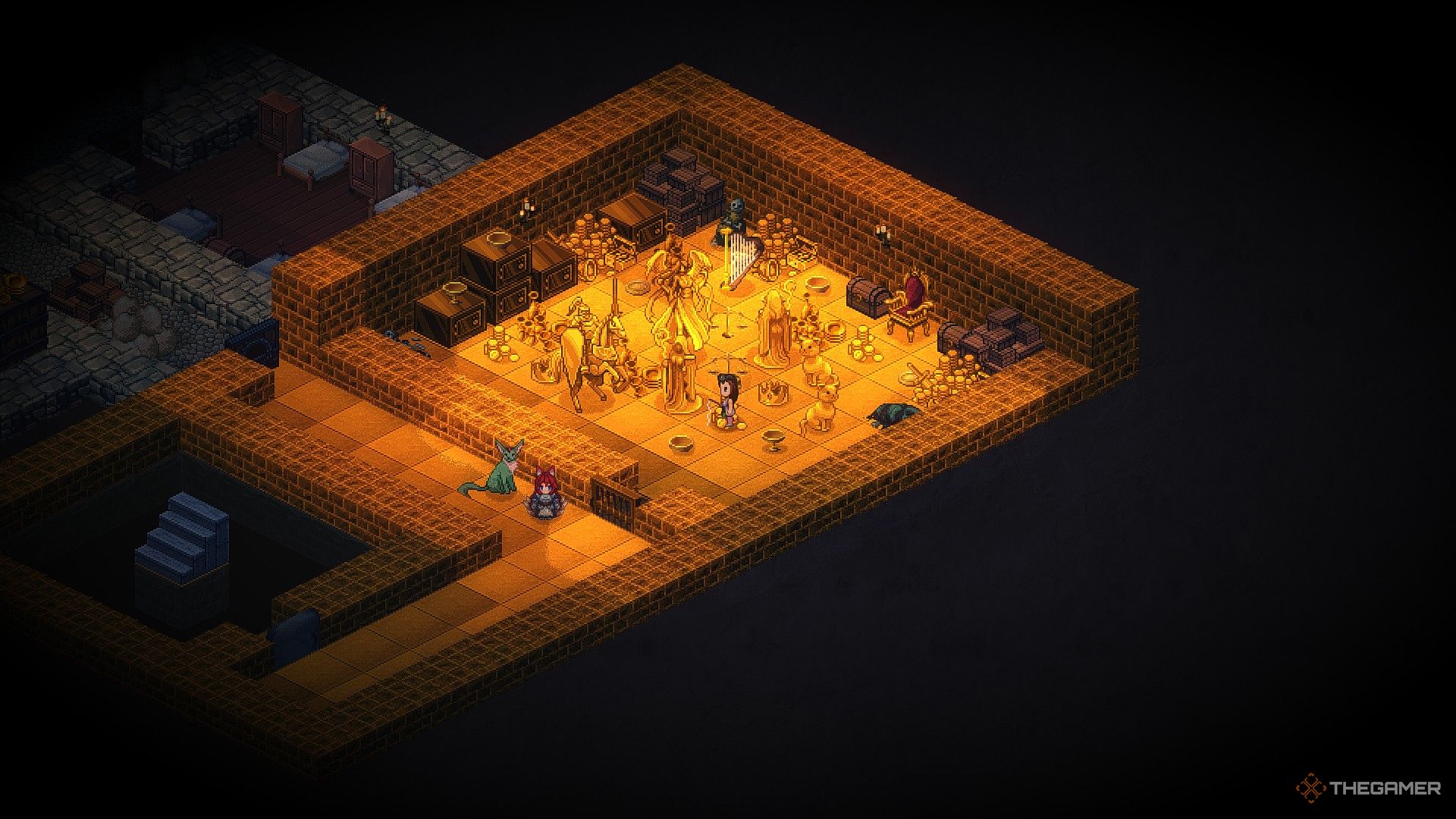
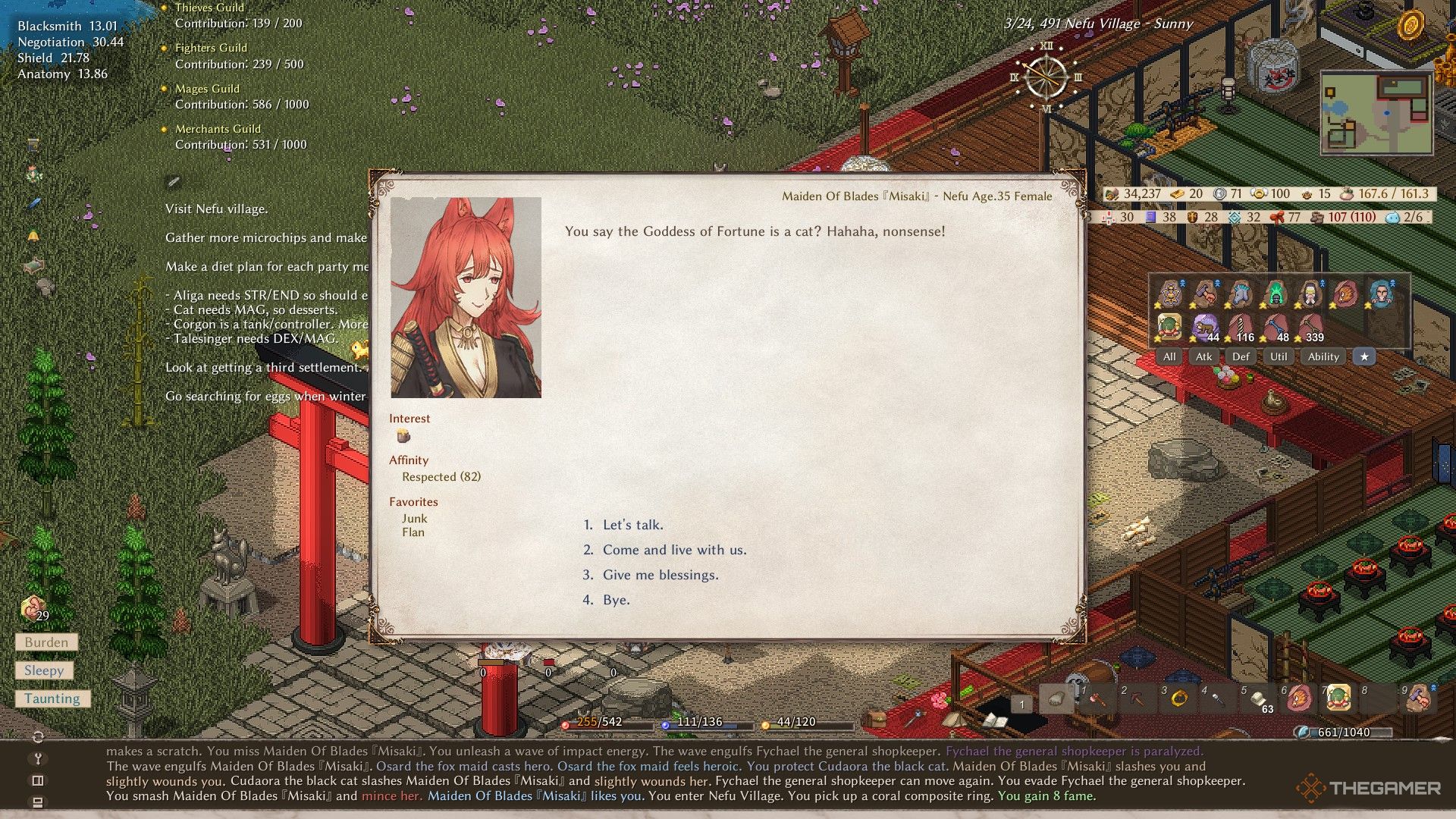
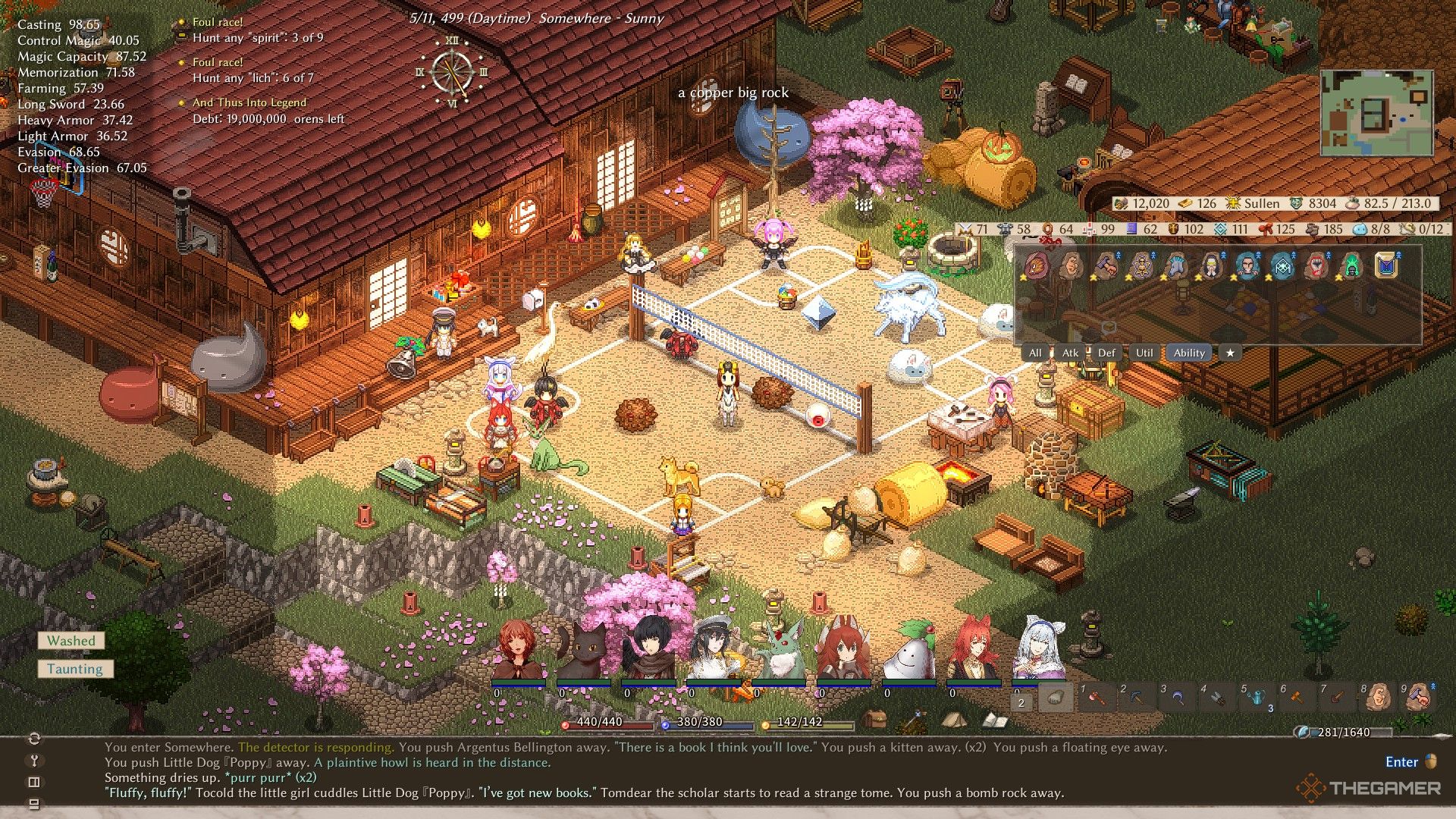
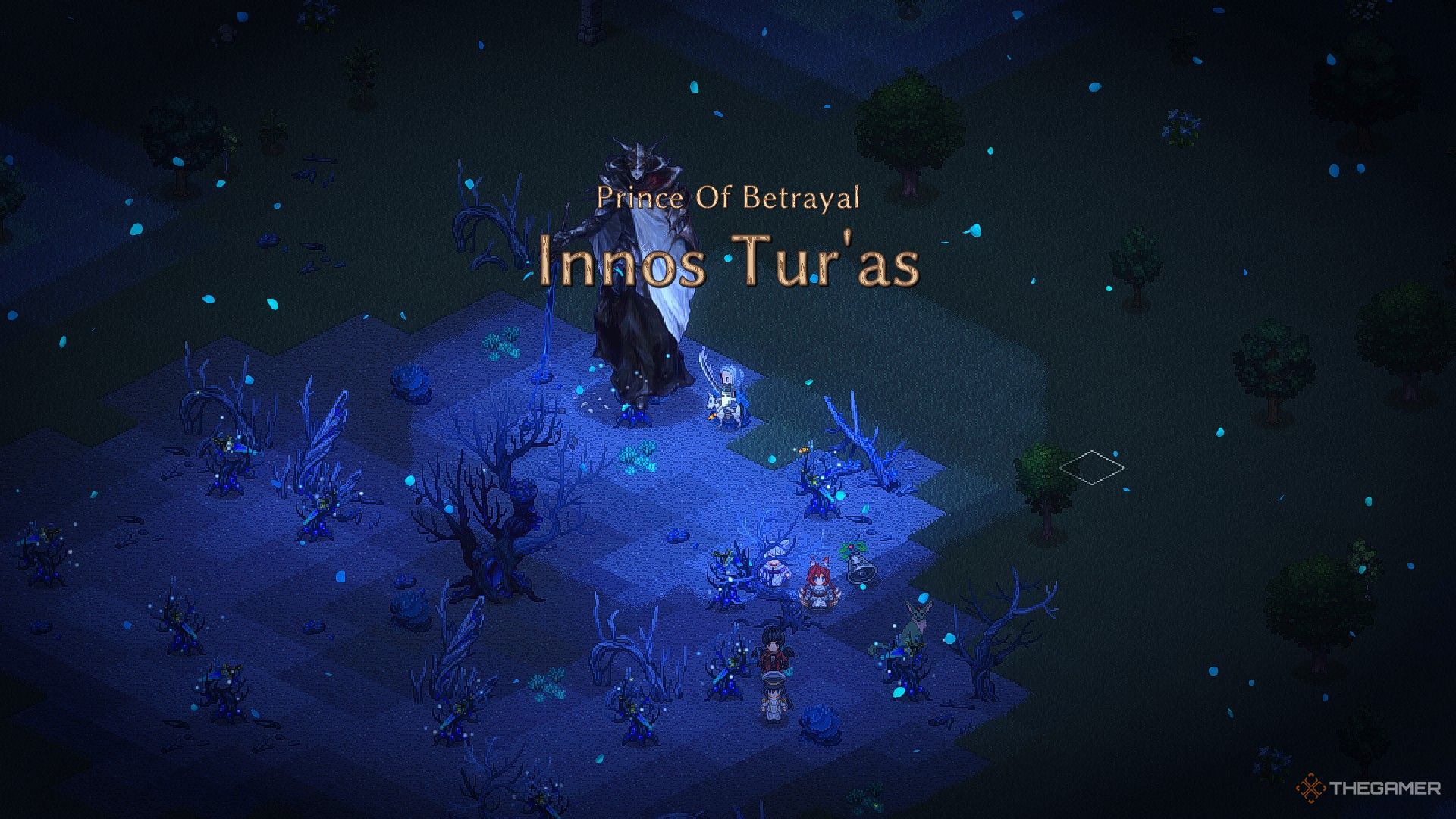
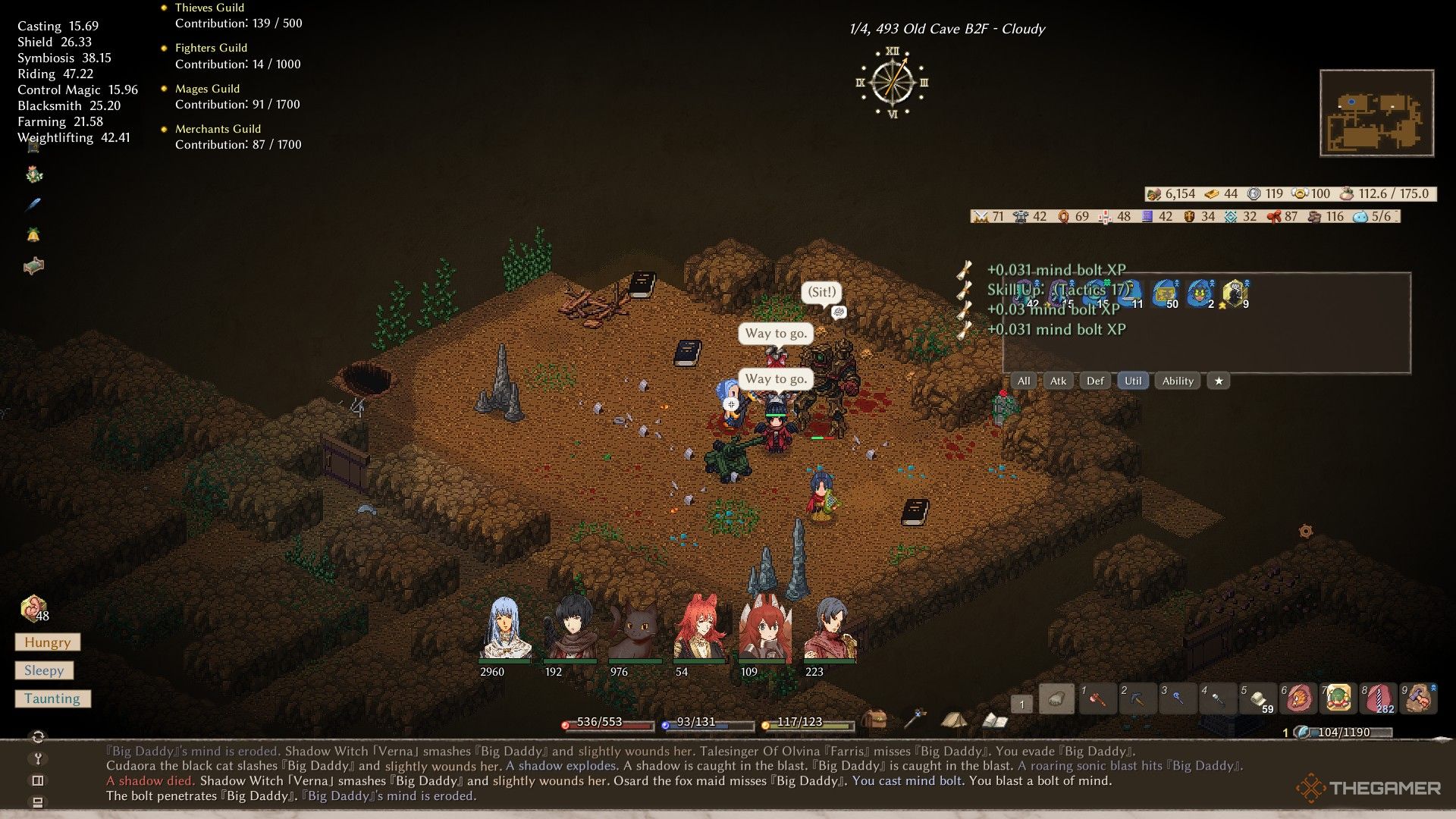
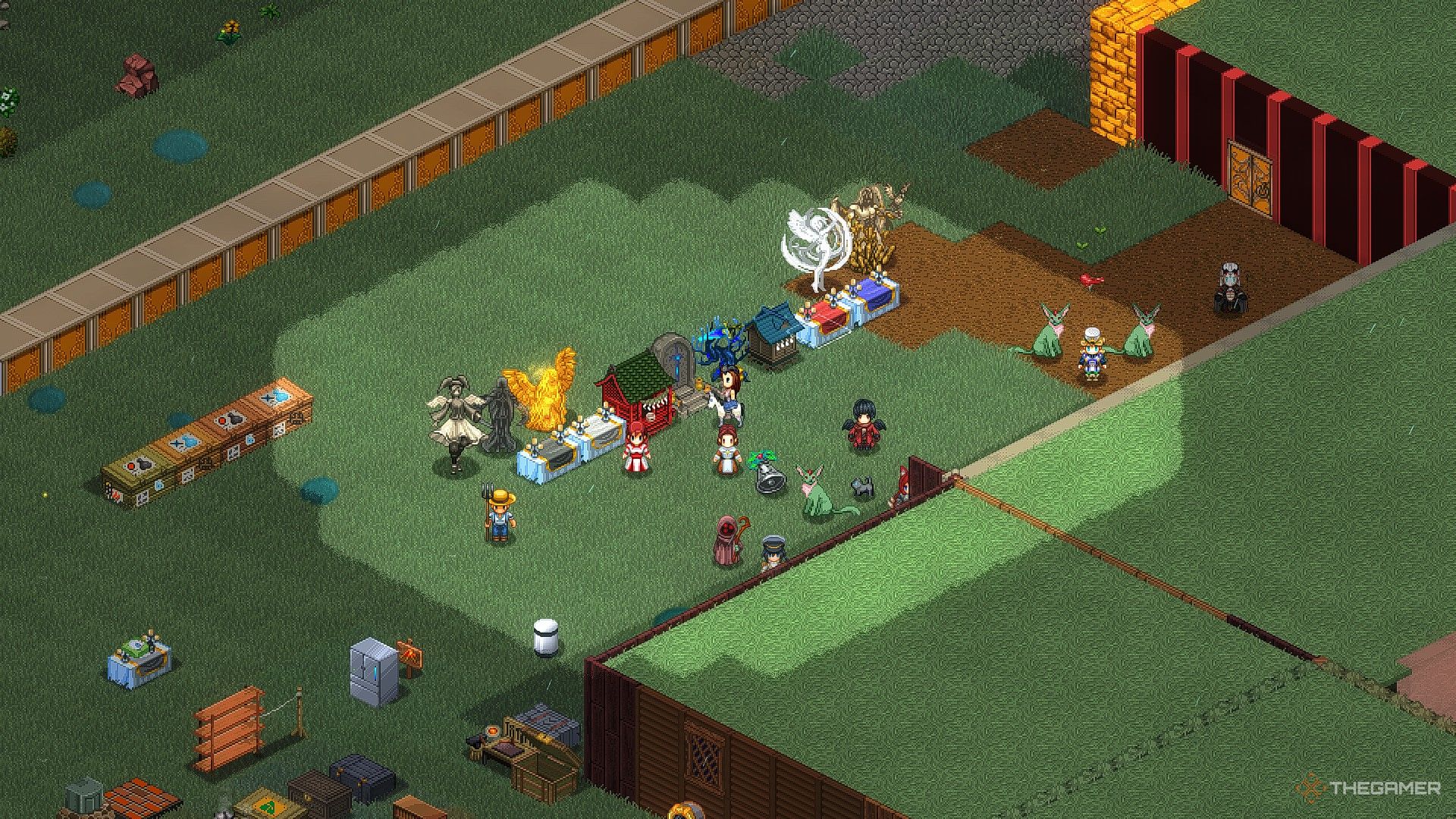
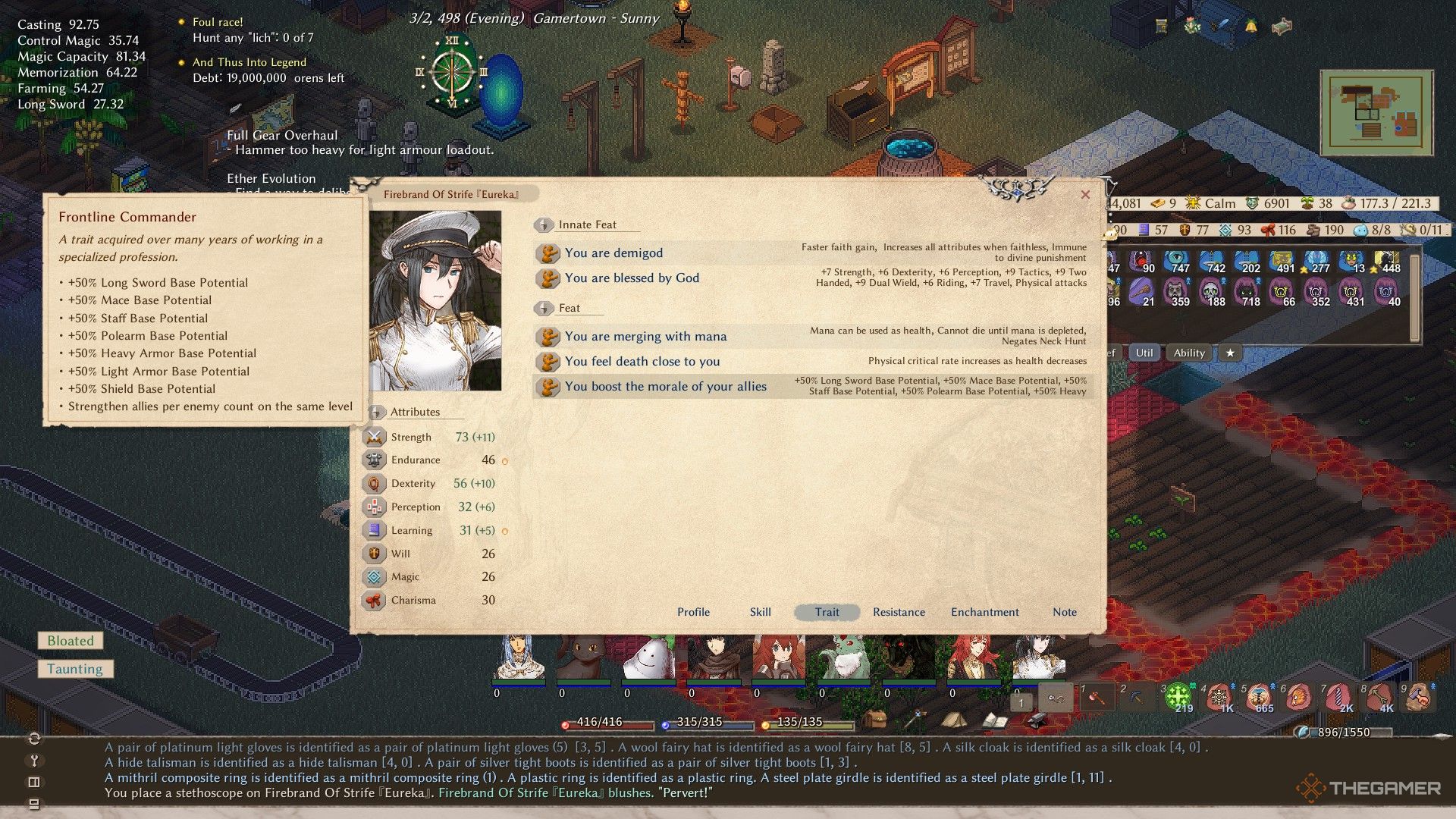
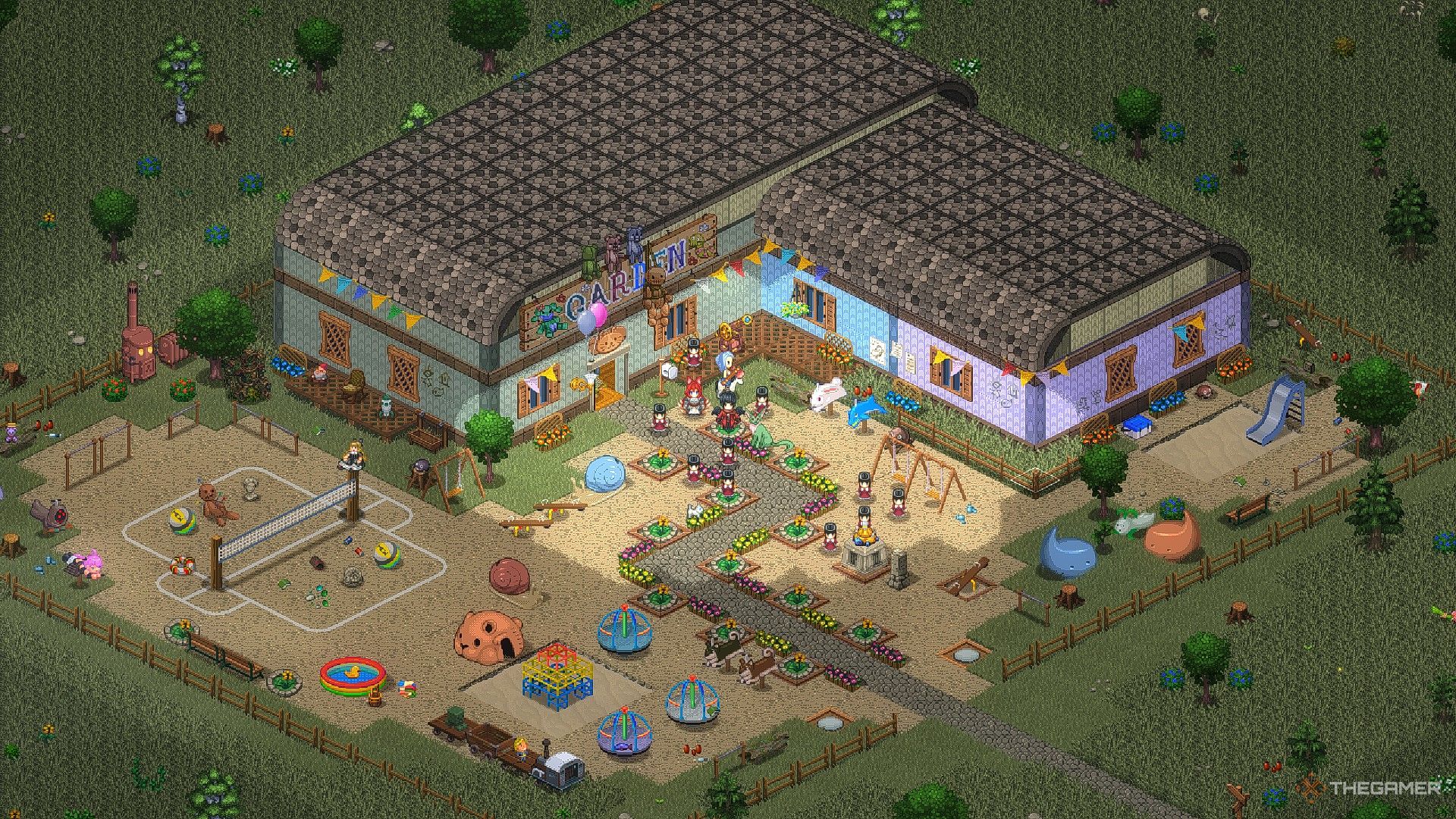









Leave a Reply